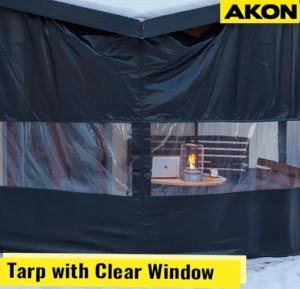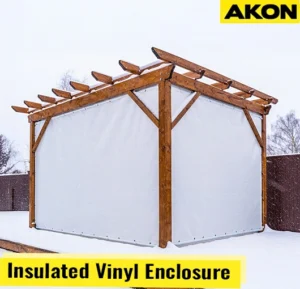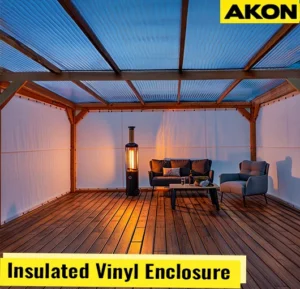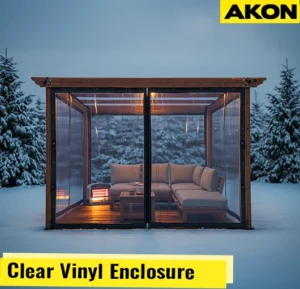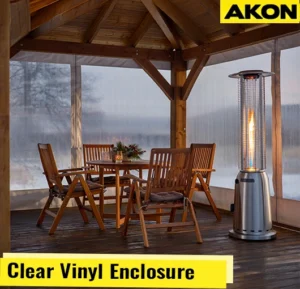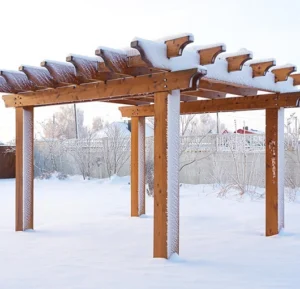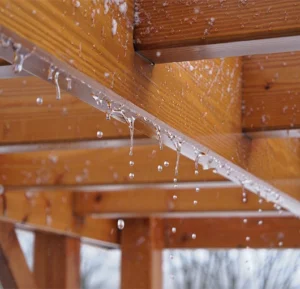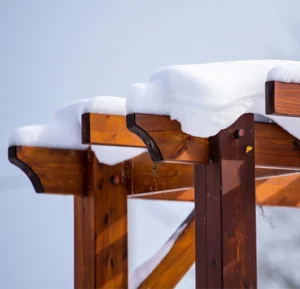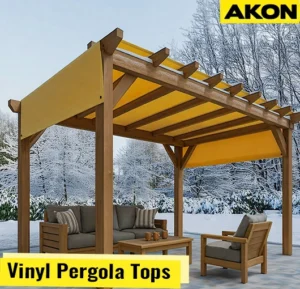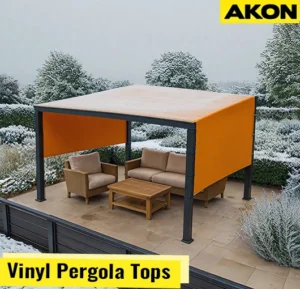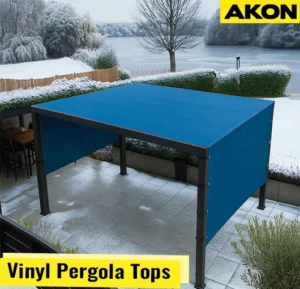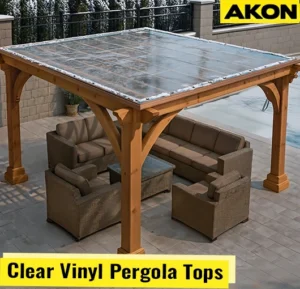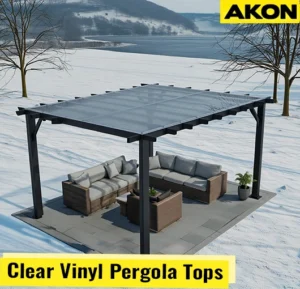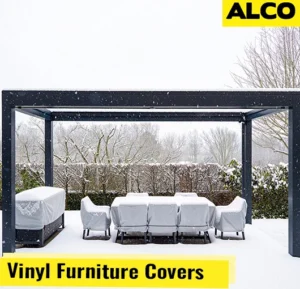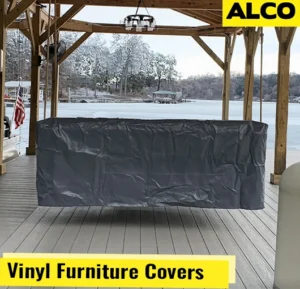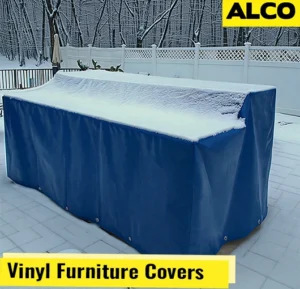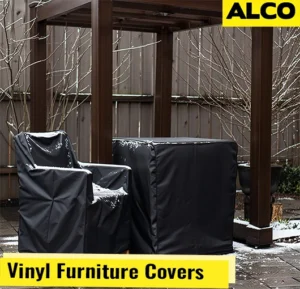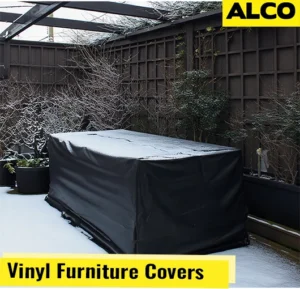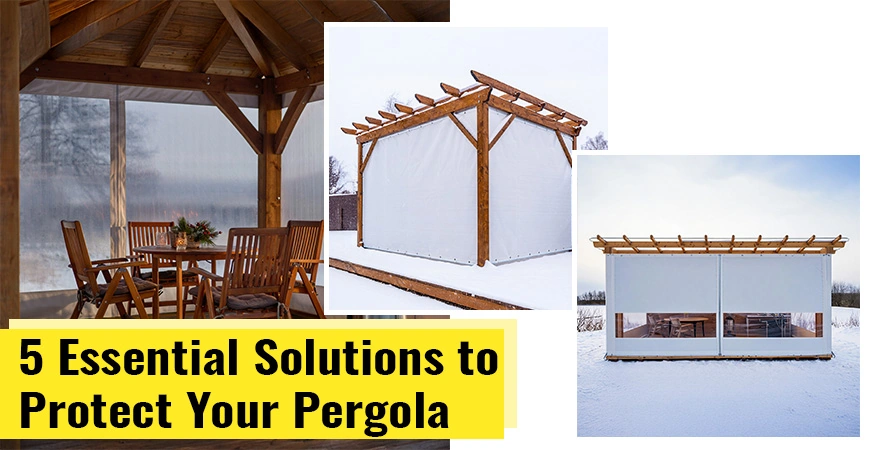
Overview
Most people cover their pergolas when fall arrives and don't think about them again until spring. But here's the thing: a pergola doesn't need to sit empty for six months of the year. With some smart winterizing, that outdoor space can stay useful even when there's snow on the ground.
More homeowners are figuring out ways to extend the life of their outdoor spaces. Makes sense when you think about it. Why let a perfectly good structure go to waste just because the temperature drops? Whether someone wants a place to drink morning coffee while watching the snow fall, or needs extra space for holiday guests, a winterized pergola solves a real problem.
Why Your Pergola Deserves Winter Protection
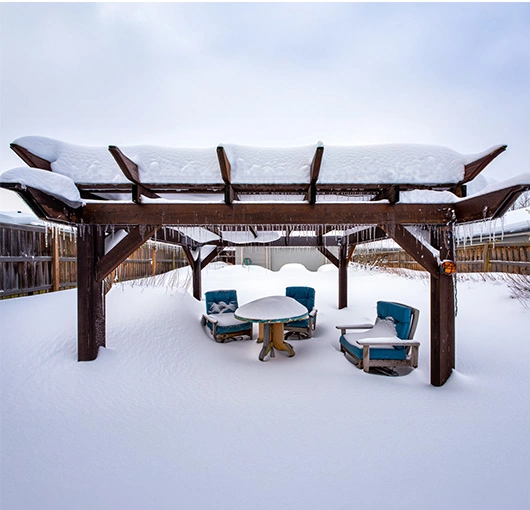
Picture this: a beautiful pergola sitting empty for six months while snow piles up and ice forms on the beams. Meanwhile, inside the house, there's a scramble for space. The home office is crammed in a bedroom corner. There's no good spot to host friends during the holidays. And come spring, that pergola needs repairs because winter weather did its damage.
Here's what most people don't realize. That outdoor structure represents a significant investment, but it's only being used half the year. The math doesn't add up. Building a pergola costs anywhere from $3,000 to $10,000 or more. Letting it sit unused from October through March means paying for something that only works six months out of twelve.
But the real loss isn't just about money. It's about missing out on usable space when it's needed most. Winterizing isn't just about using the space in winter. It's about protecting the investment, extending the pergola's life, and getting actual value from outdoor square footage year-round instead of watching it deteriorate half the year.
Solutions for Winterizing Your Pergola
Solution 1: Hang Up Some Heavy-Duty Vinyl Curtains
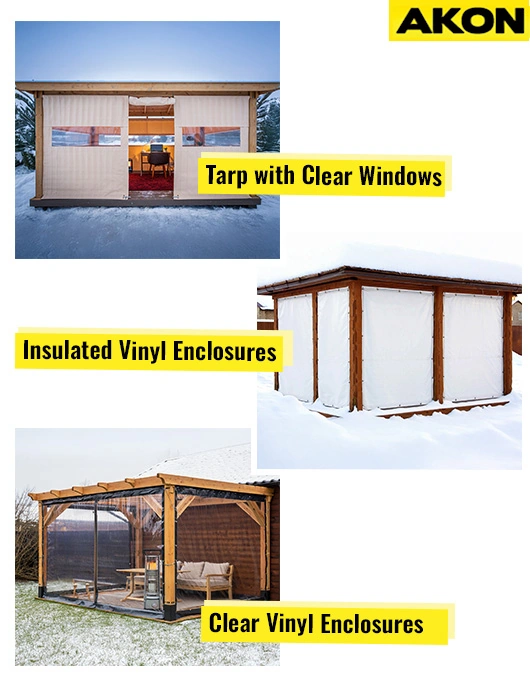
Vinyl enclosures go around the outside of the pergola and keep out wind, snow, and rain while yet letting in light. You have three main choices:
Your options:
- AKON's Clear Vinyl Enclosure – Crystal-clear panels that let in natural light and keep the open-air feel.
- AKON's Insulated Vinyl Enclosure – Backed with foam to hold in warmth, making it perfect if you are adding heaters and want to cut down on energy costs.
- AKON's Tarp with Clear Window – A budget-friendly pick that combines durable tarp material with clear window panels.
Easy to Install: Just measure each side and order panels custom-made to fit. They come with grommets already in place so you can hang them with hooks, tracks, or bungees. Weighted hems help keep everything steady when the wind picks up.
Cost-Friendly Choices: With AKON, you get to choose what works best for your budget and needs. Clear vinyl for a solid mid-range option, insulated vinyl for premium protection, or tarp with vision panels for the most affordable solution.
Solution 2: Apply Protective Sealants
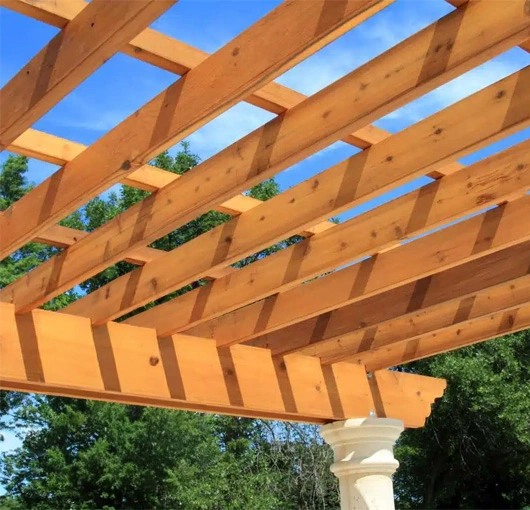
When you seal the pergola before winter, expensive damage from freeze-thaw cycles is avoided. On dry days above fifty degrees, waterproof sealer with UV protection should be put on wooden pergolas, paying extra attention to flat areas where snow sits.Metal pergolas require rust removal with a wire brush, rust converter treatment, and weatherproof paint if needed, plus tightening all bolts since cold makes metal contract.
This DIY project costs thirty to one hundred dollars depending on pergola size and sealer quality. Though not the most exciting task, proper sealing stops water from penetrating materials, freezing, expanding, and creating cracks that lead to costly spring repairs.
Solution 3: Add a Roof System
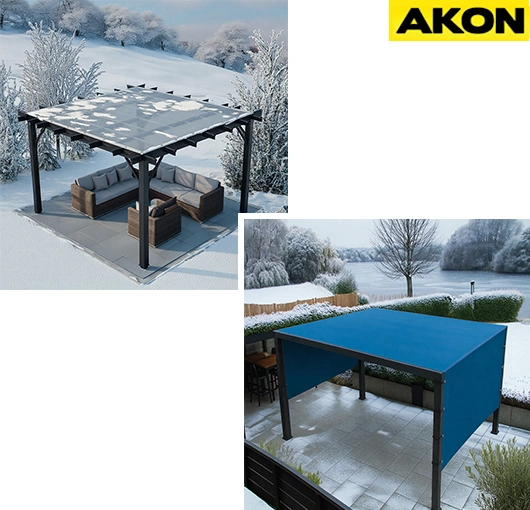
Pergola slats let snow and rain fall right through, which creates problems underneath. Two main roofing options solve this effectively. AKON's clear vinyl tops keep everything transparent while blocking precipitation completely, so the space still feels open and bright with full natural light.
For more comprehensive protection, AKON's vinyl pergola tops create a sealed barrier that blocks rain, wind, and UV rays while maintaining visibility. Both options are custom-fitted to exact pergola dimensions. The key is making sure any roof angles downward so snow and water slide off instead of pooling. Direct runoff away from posts to prevent foundation damage. These solutions typically run one hundred to five hundred dollars depending on size and customization.
Solution 4: Conduct a Structural Inspection and Reinforce
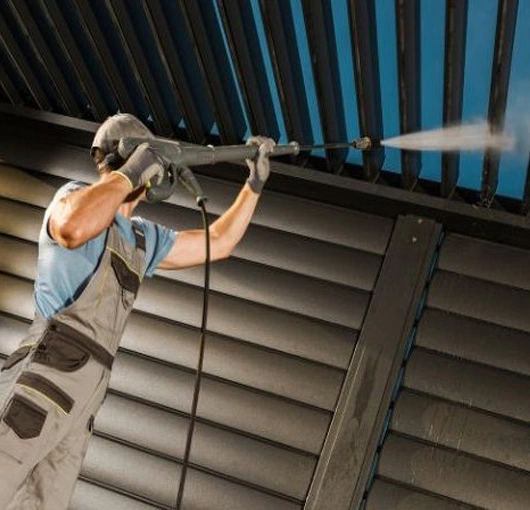
Before winter starts, walk around your pergola and check everything. Push on the posts to see if they wobble. Look at where beams connect and check for cracks. Check metal parts for rust and make sure all bolts are tight.
Here's something to remember: wet snow weighs twenty pounds per square foot. That adds up fast across a whole roof. If anything feels wobbly or weak, add metal brackets at the corners for twenty to fifty dollars. In areas with heavy snow, some people add a temporary post in the middle for thirty to eighty dollars. You can also hire someone to inspect it for one hundred to two hundred dollars. Fixing problems now prevents bigger issues when snow starts piling up.
Solution 5: Winterize Furniture and Accessories
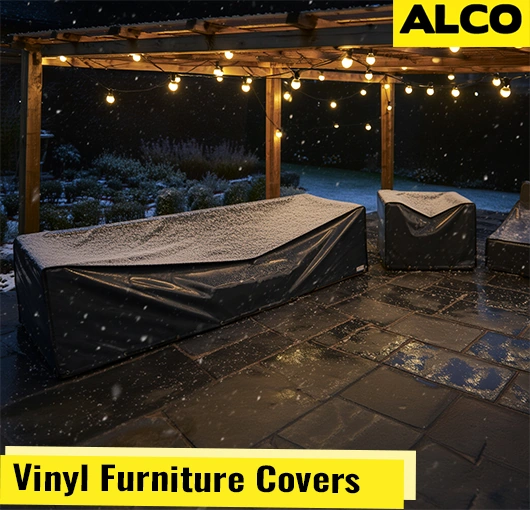
Your pergola furniture needs protection too, or you'll be replacing everything come spring. Skip those flimsy covers from big box stores and go with commercial-grade options like ALCO outdoor furniture covers.
These aren't one-size-fits-all deals that end up looking like garbage bags draped over your furniture. They're custom-made to fit exactly, using the same tough material found on trucking tarps. That means real protection from sun, rain, snow, and whatever else winter throws at you. Clean everything first and let it dry completely before covering, otherwise you're trapping moisture that causes mold. Toss cushions in the garage, drain your water features, and unplug any lights. Good covers run fifty to two hundred dollars but beat replacing furniture that costs thousands.
Which Winterization Solution Is Right for You?
Compare Your Options
You've decided to protect your pergola for winter, but now you're looking at all these options and can't figure out which one is right for you. It's hard to tell what's important when all you want is to keep your outdoor structure safe without spending a fortune or tackling a huge project. This guide breaks everything down clearly and shows you what each approach delivers, so you can quit overthinking it and choose what works for your needs and wallet.
| Solution | Materials | Investment Cost | Effectiveness | Durability | Installation | All-Year Use |
|---|---|---|---|---|---|---|
| Vinyl Enclosure | ✓ Clear PVC/vinyl panels | $$$ Mid–High | ✓ Strong wind/snow block; keeps views | Very good; avoid scratches | ✓ DIY/Pro; ~2–4 hrs | Good; roll up in summer |
| Protective Sealants | ✓ Water/UV-repellent wood sealant | $ Low ($30–$100) | ✓ Prevents moisture damage; extends life | Good; reapply as needed | ✓ Easy DIY; ~2–3 hrs | Maintenance only; no heat |
| Temporary Roof | ✓ Canopy/tarp roof panels | $$ Low–Mid ($50–$300) | ✓ Stops snow from above | Good; depends on anchoring | ✓ Moderate DIY; ~3–5 hrs | Low; top-only protection |
| Structural Reinforcement | ✓ Braces, anchors, hardware | $$ Low–Mid ($20–$200) | ✓ Improves load capacity; safety | ✓ Essential for longevity | Pro/DIY; ~1–3 hrs | Support only; not a weather seal |
| Protect Furniture with Commercial-Grade Covers | ✓ Custom heavy-duty vinyl/tarp fabric (ALCO-style) | $ Low–Mid ($50–$200) | ✓ Shields from sun/rain/snow; clean & dry first to prevent mold | ✓ Very durable; trucking-tarp grade | ✓ Easy DIY; ~1–2 hrs (store cushions, unplug lights) | Protects furnishings; not for occupancy |
Why Vinyl Curtains Work (When Other Solutions Don't)
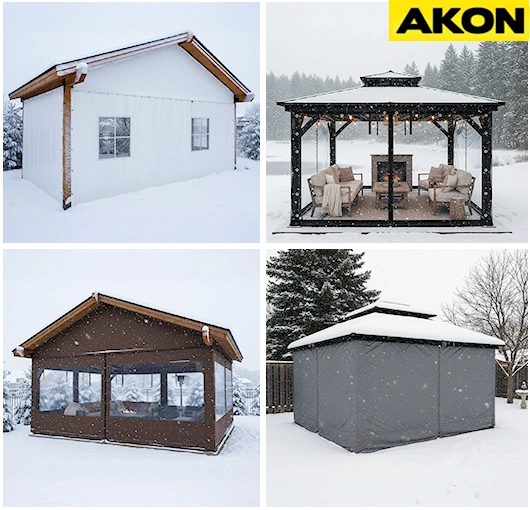
Most pergola solutions make you sacrifice flexibility for coverage. Vinyl enclosures give you complete control instead. Each panels of the enclosure operate separately and retract during pleasant conditions. Sunny day outside? Open the whole thing up. Bad weather approaching? Lower only what's needed. There's no commitment to a single configuration that limits your options.
Transparent vinyl lets you see the view outside while protecting you from bad weather. The area naturally gets a lot of sunlight, and you can still see your yard through the vinyl. At the same time, wind, precipitation, and freezing temperatures stay outside where they belong. Everything feels airy rather than confined. Durability isn't sacrificed either. Industrial-strength material with reinforced seams and commercial-grade fasteners withstands years of seasonal abuse. Real defense against the elements comes without contractor bills or irreversible changes like adding glass walls or solid coverings.
Easy Install
Outdoor curtains come with grommets at the top making hanging the curtains quick and easy with or without the curtain track.
Inexpensive
Outdoor curtains are about 1/3rd of the cost of other separation methods such as rigid walls or panel systems and are easy to store.
Temperature Control
Keep consistent temperatures inside more consistent for a more comfortable work environment and pull open when not needed.
Wind Blocking
Keep the wind and rain out when the weather turns nasty but still have the ability to pull open the curtain when its nice or you need access.
Material Options
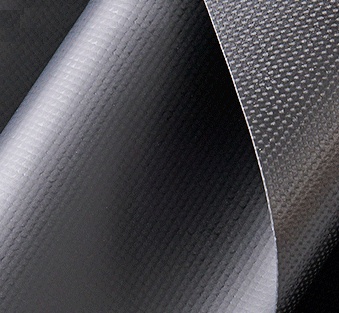
Opaque Vinyl
Industrial grade 18oz opaque vinyl ideal for moderate temperature control and blocking line of sight. $$

Clear Vinyl
Industrial grade 30mil clear vinyl ideal for moderate temperature control and allowing a line of sight. $$

Insulated Vinyl
Industrial R3 1/2" thick material with 18oz vinyl skins ideal for heavy temperature control and blocking the line of sight. $$
Frequently Asked Questions
If you want to use the space for more than just summer, it makes sense to protect your gazebo during the winter. But there are probably other things you want to know first. Things like how much things really cost, how long solutions last, how they're installed, and how to keep everything in good shape. We made this Frequently Asked Questions (FAQ) part to answer the questions that people have the most when they start to look into how to put up a pergola for the winter. Read on to find out how the different ways work, how long you can expect your pergola to last, and why winterizing it is one of the best things you can do to make it last longer in cold weather.
Pergola Winterization FAQs
What’s the best way to winterize a pergola?
Start with weather sealing, wind blocking, and safe heat. Combine clear vinyl pergola curtains or insulated panels with a temporary roof, reinforce posts and hardware, and seal wood. Finish by covering furniture with commercial-grade covers. This balanced setup preserves views and enables reliable, four-season use.
Do I need a full enclosure to use my pergola in winter?
No, not always. Clear vinyl side panels plus a temporary roof can block wind and snow well enough for light use. For heated comfort, add insulated vinyl panels and seal gaps around posts and beams. Reinforcing the structure and protecting furniture completes a dependable winterization package.
Can clear vinyl pergola curtains handle wind and snow?
Yes, quality clear PVC vinyl resists wind and sheds snow when tensioned correctly. Choose marine-grade vinyl, reinforced hems, and stainless grommets or tracks. Keep panels taut and roll them up during storms if needed. Avoid abrasive cleaning and store panels dry to prevent fogging or scratches.
What’s the difference between clear vinyl, insulated panels, and tarps?
Clear vinyl keeps views and blocks wind and rain. Insulated vinyl panels add foam layers for heat retention with optional vision windows. Tarps with clear windows are budget-friendly but less polished. Pick based on desired warmth, appearance, and cost, then pair with a roof solution for snow control.
How thick should clear vinyl be for cold climates?
Go thicker for stiffness and clarity in cold. Many pergola winterization kits use 20–30 mil clear vinyl for durability and fewer waves. Thinner films work in mild areas but flap more in wind. Confirm compatibility with your track or fasteners and store flat or on a core to prevent creasing.
Will winterizing damage my pergola’s wood or finish?
No, not if installed and maintained properly. Seal wood with a quality exterior sealant, avoid penetrating fasteners where unnecessary, and use stainless or coated hardware. Keep panels clean and dry to prevent trapped moisture. Periodically vent the space and check connections after severe weather events.
Can I install a vinyl enclosure myself?
Yes, many kits are DIY-friendly. Measure each bay, order custom panels with grommets or a track system, and mount to solid framing. Plan for door access, bottom hold-downs, and neat roll-up straps. For complex layouts or very large spans, consider professional installation for best sealing and fit.
How does an insulated vinyl enclosure improve heating?
Insulated vinyl encloses the space and slows heat loss. Foam cores reduce conduction, while sealed seams cut drafts. Add safe, outdoor-rated heaters and vent as required. Vision panels preserve daylight. Compared to single-layer vinyl, insulated panels maintain comfort longer and lower heater run time in winter.
Can I use space heaters safely inside an enclosed pergola?
Yes, with precautions. Choose outdoor-rated electric or infrared heaters, keep clearances from vinyl and wood, and follow manufacturer instructions. Provide ventilation to reduce condensation and ensure safe air quality. Avoid open flames near curtains. Use GFCI circuits and never leave heaters unattended in enclosed spaces.
Do I need a temporary pergola roof for snow protection?
Often, yes. A temporary roof prevents snow from piling through open rafters and protects panels below. Use tensioned canopy panels or rigid sheets with proper pitch and drainage. In heavy snow zones, reinforce beams and posts and remove accumulation promptly to maintain structural safety through winter.
How can I reduce condensation and mold in winter enclosures?
Vent and dry. Crack a panel or add screened vents to promote airflow, use a small dehumidifier during damp spells, and avoid covering wet surfaces. Clean vinyl with mild soap, rinse, and dry. Store cushions indoors. Regular ventilation plus dry storage prevents fogging, mildew, and musty odors.
What maintenance is needed after winter ends?
Rinse panels, wash with mild soap, and dry fully before storage. Inspect stitching, zippers, and grommets, and touch up sealant on wood. Lubricate track hardware and replace worn straps. Store vinyl rolled on a core in a cool, dry place. Rehang and spot-polish as needed next season.
How much does pergola winterization usually cost?
Costs vary by approach. Clear vinyl panels typically run mid-range, insulated panels cost more, and tarp systems are budget-friendly. Temporary roofing, reinforcement, heaters, and commercial-grade furniture covers add to the total. Expect a few hundred to several thousand dollars depending on size and features.
How long does pergola winterization take to install?
Most DIY installs finish in a day or two. Simple curtain bays and hardware mount quickly, while measuring, fitting, and sealing edges take the most time. Add hours for door openings, roof work, and reinforcement. Pro installers can complete complex projects faster with cleaner seams and alignment.
Is a winter enclosure removable and reusable?
Yes. Panels are designed to roll up or come off in warm months and store for the next season. Use labeled storage bags and keep panels clean and dry. Reusable fasteners, tracks, and straps speed reinstallation. Proper storage dramatically extends clarity, flexibility, and seam life year over year.
Can winterized pergolas withstand high winds?
Yes, when properly anchored. Use reinforced hems, frequent grommets or continuous tracks, bottom hold-downs, and bracing at corners. Keep panels taut to reduce billowing. Follow local wind ratings and consult a pro for exposed sites. For severe storms, rolling panels up may reduce stress on hardware.
Do I need permits or HOA approval to add an enclosure?
Sometimes. Fabric curtains usually fall under accessory weather protection, while rigid roofs or framed walls may require permits or HOA review. Check local codes and community guidelines before ordering. Getting approvals early prevents delays, ensures compliance, and avoids having to modify a finished project.
Can I keep my view and natural light in winter?
Yes. Clear vinyl pergola curtains preserve views and daylight while blocking wind and rain. Add vision windows to insulated panels if you need warmth. A transparent roof insert can brighten darker areas. Position heaters and furniture to avoid glare and keep sightlines open toward your landscape.
How do commercial-grade furniture covers help in winter?
They protect your investment. Custom covers use tough tarp-grade vinyls for real weather resistance and clean fits. Always wash and dry furniture first, store cushions indoors, and unplug lighting. Breathable vents reduce moisture buildup. Quality covers cost less than replacing faded or water-damaged outdoor sets.
What measurements do I need to order custom panels?
Measure width and height for each bay, inside the posts, and note obstacles like rails or planters. Record mounting surfaces for tracks or grommets, desired door openings, and bottom hold-down options. Provide roof pitch if adding a top. Photos with labels help ensure a clean, accurate fit.
Summary
The right approach depends on what you need and what you can spend. If you're watching your budget, start with sealants and a structural check. That's under two hundred dollars for basic protection. If you live somewhere with heavy snow, focus on adding a roof and reinforcing the structure to handle the weight.
Want to use your pergola during winter? A full enclosure is worth the investment because you get a comfortable outdoor room for all seasons. For most people, combining a few solutions works best. Seal the materials, add vinyl enclosures for wind protection, and reinforce the structure for complete coverage.
Start getting ready before the snow hits, and your outdoor space will stay protected and functional for years to come.

